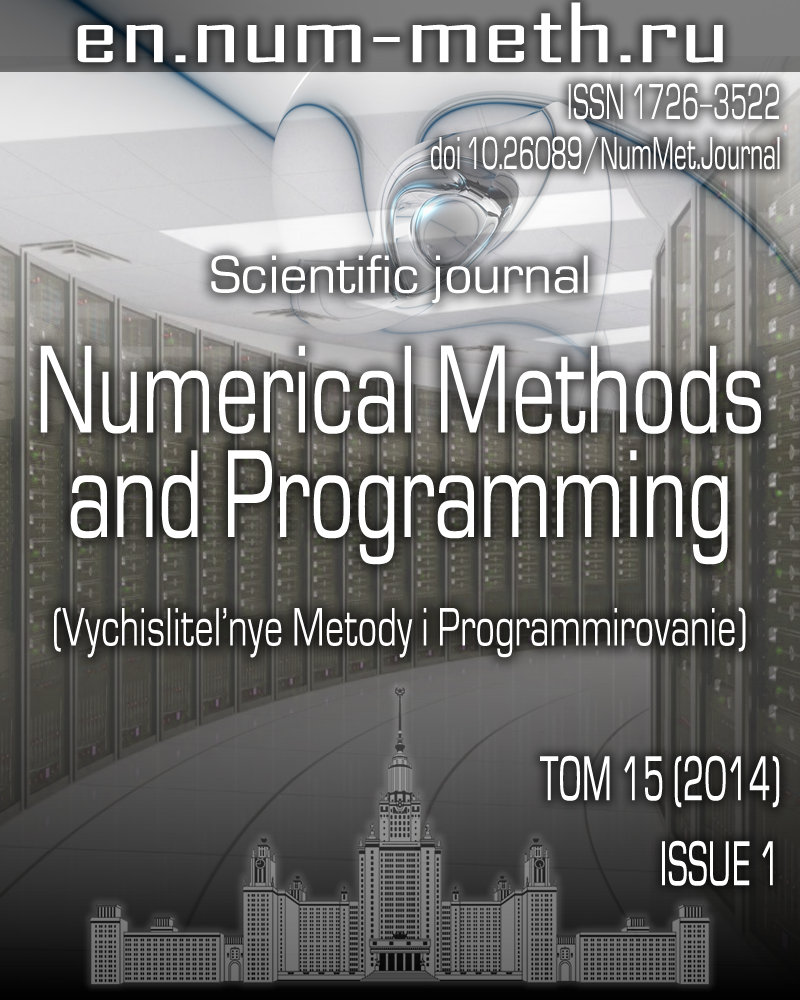Application of the duality principle in inverse problems for parabolic equations with unknown right-hand sides
Keywords:
Abstract
The duality principle is considered to prove uniqueness theorems for inverse parabolic problems with final overdetermination. The solutions of such ill-posed problems may fail to exist or be unstable with respect to errors in the input data (the corresponding example is constructed). However, we show that, if a solution exists, it can be unique. The proposed approach allows one to clarify a relationship between the uniqueness property and the density properties of solutions of the corresponding adjoint problems. It is shown that these adjoint problems can be considered as control problems with a control function given in the initial conditions. It is also shown that such density properties follow, in their turn, from the known inverse uniqueness for linear parabolic operators. A number of examples are discussed to illustrate the sufficiency of the uniqueness conditions proved on the basis of the duality principle. Application of this principle makes it possible to study the uniqueness problem for ill-posed inverse problems in their original formulations in the context of the theory of parabolic equations.
Published
Issue
Section
References
- Гольдман Н.Л. Свойства решений параболических уравнений с неизвестной правой частью и их сопряженных задач // Доклады АН. 2008. 420, № 2. 151-156.
- Латтес Р., Лионс Ж.-Л. Метод квазиобращения и его приложения. М.: Мир, 1970.
- Лионс Ж.-Л. Оптимальное управление системами, описываемыми уравнениями с частными производными. М.: Мир, 1972.
- Lees M., Protter M.H. Unique continuation for parabolic differential equations and inequalities // Duke Math. J. 1961. 28. 369-383.
- Фридман А. Уравнения с частными производными параболического типа. М.: Мир, 1968.
- Гольдман Н.Л. Однозначность определения функции источника в квазилинейной обратной задаче Стефана с финальным наблюдением // Доклады АН. 2012. 444, № 6. 597-601.
- Клибанов М.В. Об одном классе обратных задач для нелинейных параболических уравнений // Доклады АН. 1985. 280, № 3. 533-536.
- Прилепко А.И., Соловьев В.В. Теоремы разрешимости и метод Ротэ в обратных задачах для уравнений параболического типа // Дифференциальные уравнения. 1987. 23, № 11. 1971-1980.
- Isakov V. Inverse parabolic problems with the final overdetermination // Commun. on Pure and Applied Math. 1991. 14, N 2. 185-209.
- Костин А.Б. О комплексных собственных значениях эллиптического оператора и примере неединственности решения обратной задачи // Доклады АН. 2013. 453, № 2. 138-141.
- Ладыженская О.А., Солонников В.А., Уральцева Н.Н. Линейные и квазилинейные уравнения параболического типа. М.: Наука, 1967.
- Egger H., Engl H.W., Klibanov M.V. Global uniqueness and Hölder stability for recovering a nonlinear source term in a parabolic equation // Inverse Problems. 2005. 21, N 1. 271-290.
- Isakov V. On uniqueness in the inverse conductivity problem with local data // Inverse Problems and Imaging. 2007. 1. 95-105.
- Wang Y.B., Cheng J., Nakagawa J., Yamamoto M. A numerical method for solving the inverse heat conduction problem without initial value // Inverse Problems in Science and Engineering. 2010. 18, N 5. 655-671.
- Slodiucka M., Lesnic D., Onyango T.T. M. Determination of a time-dependent heat transfer coefficient in a nonlinear inverse heat conduction problem // Inverse Problems in Science and Engineering. 2010. 18, N 1. 65-81.
- Salva N.N., Tarzia D.A. Simultaneous determination of unknown coefficients through a phase-change process with temperature-dependent thermal conductivity // JP J. of Heat and Mass Transfer. 2011. 5, N 1. 11-39.
- Pyatkov S.G. On some classes of inverse problems for parabolic and elliptic equations // J. of Evolution Equations. 2011. 11, N 1. 155-186.
- Erdem A., Lesnic D., Hasanov A. Identification of a spacewise dependent heat source // Applied Math. Modelling. 2013. 37, N 24. 10231-10244.
- Wen J., Yamamoto M., Wei T. Simultaneous determination of a time-dependent heat source and the initial temperature in an inverse heat conduction problem // Inverse Problems in Science and Engineering. 2013. 21, N 3. 485-499.
- H`ao D.N., Thanh P.X., Lesnic D., Ivanchov M. Determination of a source in the heat equation from integral observations // J. of Computations and Applied Mathematics. 2014. 264, N 1. 82-98.
License
Copyright (c) 2014 Вычислительные методы и программирование

This work is licensed under a Creative Commons Attribution 4.0 International License.


